Save on your energy bills and stay cosy this Autumn/Winter with our energy saving tips. Our tips list is taken from the Octopus Energy Winter Workouts Tips.

Tip #1: Flow Temperature
You should set your boiler’s ‘flow temperature’ between 55 and 60 degrees. Your home will feel warm enough and you could see real savings on your energy use.
Set at the default setting, these temperatures are generally too high. This then uses more energy than is required to heat your home and usually means your home doesn’t feel warmer anyway.
If you have a combi boiler, setting your flow temperature to 50c for heating and 55c for hot water is recommended. It will take a little longer to heat up but the savings are definitely worth while.
If you have a separate boiler and a hot water cylinder, setting the flow temperature on your boiler to a few degrees over 60c for heating and hot water, then setting your hot water cylinder to 60c. Here’s some more advice for hot water cylinder heating and info on boiler temperatures.
It is recommended to set your hot water cylinder to 60 degrees. This is hot enough to stop bacteria like Legionella from multiplying which can flourish at lower temperatures of 20-45 degrees.
These tips will work for most heating systems but all systems work a bit differently depending on your home, pipes, usage etc. It would be a good idea to read around to find the best option for your specific system.
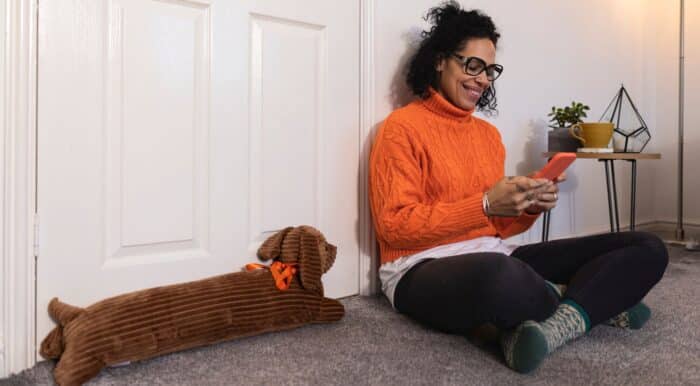
Tip #2: Reduce or block draughts
A draughty home can quickly undo all the good work of your heating as it can quickly lower temperatures in the rooms of your home.
Ventilation is important for air quality and health, but it is also the first place heat escapes.
If you can feel a draught these tips may help:
- Get a draught excluder for any doors, especially ones leading to outside. You can buy draught excluders from as little as £7 online or even make your own with a pair old tights and some rice.
- Adding a letterbox draught excluder can be a big help, especially if your front door opens directly into your main living space.
- Block up draughty gaps around doors and windows with Silicone Sealant. It is easy to apply and you can pick some up from all good DIY stores for £5 or less.
- Close doors and windows before the sun goes down to retain the heat from the day in your home.
- Keep doors between rooms closed when not in use.
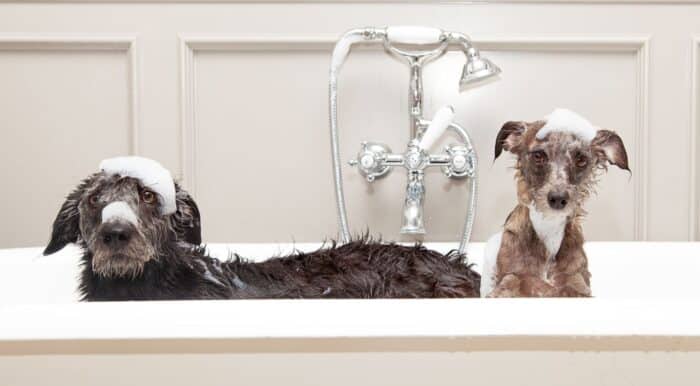
Tip #3: Avoid diluting hot water
Do you dilute your hot water for your bath, shower or washing up water with cold water? If so this means you are using energy to heat water which you are then immediately cooling.
A lower hot water temperature on your boiler or water cylinder will help reduce wasted hot water as outlined in Tip #1.
If you are washing your dishes by hand, 30-40c is generally enough to remove grease and oils from your dishes and your washing up liquid or soap will lift and remove bacteria. To kill bacteria with hot water it would need to be over 75c which would be far too hot to be able to place your hands in without being scolded. Even at 60c you can be seriously scolded in under 5 seconds.
Disinfect your sink regularly so it doesn’t become a home for bacteria.
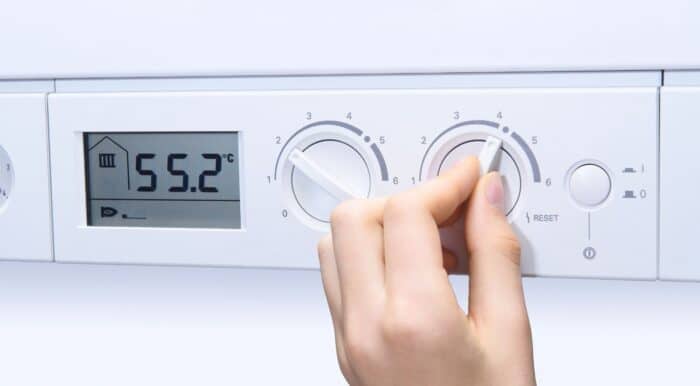
Tip #4: Timing is everything
Most boilers or thermostats will let you set a schedule, so you can turn the heating off or set it lower while you’re in bed or out of the house.
Set your heat to come on 30 minutes before required, and shut off 30 minutes early as well – the residual heat will keep your room warm for more than 30 minutes after switching the heating off. See Money Saving Expert’s advice on this.
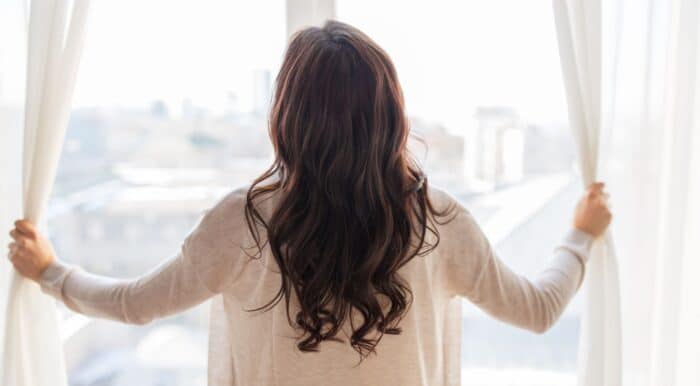
Tip #5: Close your curtains
You can reduce up to 15% heat loss if you close your curtains before it gets dark. Ensure your curtains don’t cover radiators as this will only direct the heat out of your house through your windows rather than warming your room.
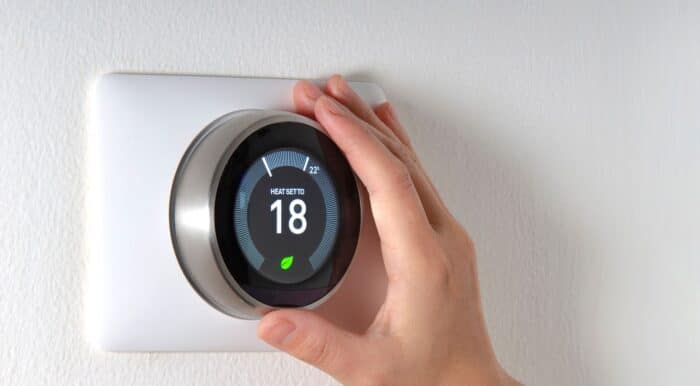
Tip #6: Leave your thermostat alone.
Try to leave your thermostat alone once you have it set to the desired settings. It can be tempting on colder days to turn it up a bit higher but it can mean more energy is wasted.
The ideal temperature is somewhere between 18-21c. It is best to set the temperature now as when it’s really cold you will be tempted to turn it up higher.
It is recommended that if anyone living in your home is over 65 or has health conditions like heart of lung disease, you should warm your home to at least 18c.

Tip #7: Do you need to heat every room?
If you are spending all evening in your living room, you don’t need to heat every other room to 21 degrees too. If you have rooms you don’t use often, you may choose to turn the radiators in that room down or off to reduce wasted energy.
Consider snuggling up in a onesie or under a blanket too to keep cosy on the colder nights rather than turning up the thermostat.
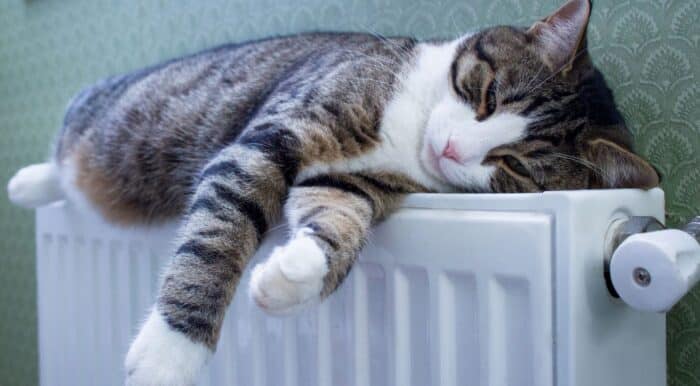
Tip #8: Keep your radiators happy
Here are some quick ways ensure your radiator is working effectively:
Furniture too close to radiators will just absorb the heat and reduce the heating of your room.
- If you can feel cooler spots on your radiators, you should bleed them as air may be trapped in them, reducing their effectiveness. How to bleed a radiator
- Avoid drying clothes directly on radiators. Use a radiator airer or clothes dryer
- Use reflective foil behind radiators to avoid your walls absorbing the heat
- Keep your radiators clean to keep them effective
- Use a radiator fan to distribute warmth quicker
- Smart radiators and allow you to control your heating room by room
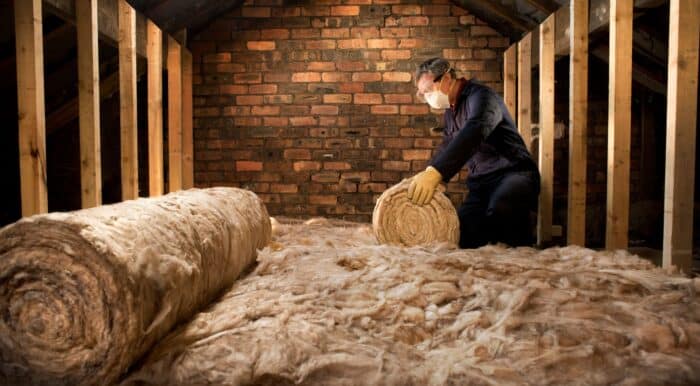
Tip #9: Stay warmer longer with insulation
Is your home insulated as well as it could be?
Loft insulation is relatively cheap to install and can significantly reduce your heat loss in your home. Other insulations such as wall insulation, underfloor insulation, room-in-roof and others will also reduce heat loss in your home and save you lots on your energy bills.
You may be eligible for free insulation under the the ECO4 Scheme or the new Great British Insulation Scheme. Find out now if you are eligible for Free Insulation.
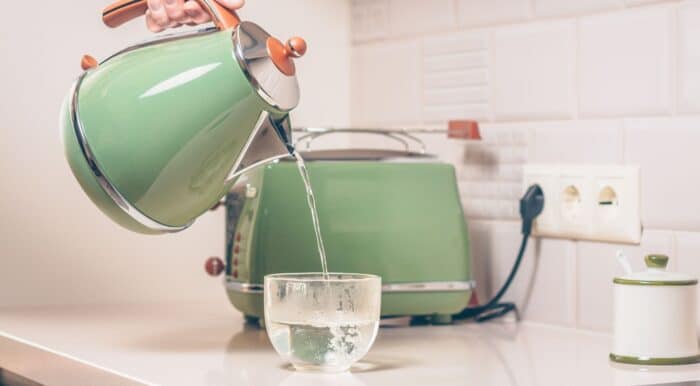
Tip #10: Heating water for cooking?
If you need to heat water for cooking or cleaning, it’s quicker and can use less energy to get it boiling with a kettle or microwave first. You can always transfer it to the hob once it’s boiling.
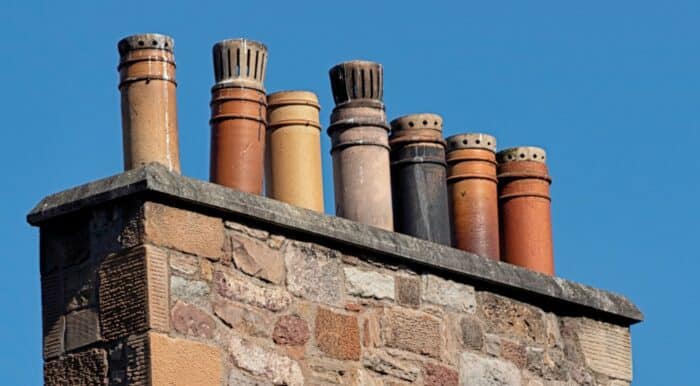
Tip #11: Block your chimney if you’re not using it
If you don’t use your chimney then you should block it up as you will be losing heat from it if not. An unblocked chimney is like leaving a window open 24 hours a day.
More Tips
You can read more tips to keep your home warm and save energy on the links below:
- Cheap ideas to help lower your energy bills – Eclipse Energy
- Free ways to lower your energy bills – Eclipse Energy
- Energy Saving tips: Checklist to save £100s – Money Saving Expert
- 20 useful energy saving tips that could reduce bills – This Is Money
- Energy Saving Tips n Tricks – Money Saving Expert